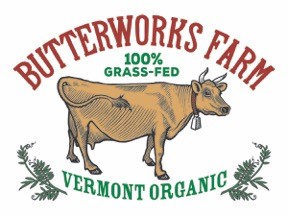 Mark Morford, best damn columnist around, has a piece in the SF Chronicle today about the demise of organic food. Demise, as in: so spectacularly successful it’s failing. It’s simple, really: any trend that WalMart decides to run with is a trend that is about to turn very toxic very fast. But the problem is not just WalMart, it’s the consumer misconception of the notion of “Organic”. While the industry has managed to convince the USDA that the term it merely certifies a certain subset of production parameters (e.g. no hormones, no pesticides etc. etc.) the consumer perception is much more broad, but, it turns out, naively delusional.
Mark Morford, best damn columnist around, has a piece in the SF Chronicle today about the demise of organic food. Demise, as in: so spectacularly successful it’s failing. It’s simple, really: any trend that WalMart decides to run with is a trend that is about to turn very toxic very fast. But the problem is not just WalMart, it’s the consumer misconception of the notion of “Organic”. While the industry has managed to convince the USDA that the term it merely certifies a certain subset of production parameters (e.g. no hormones, no pesticides etc. etc.) the consumer perception is much more broad, but, it turns out, naively delusional.
Morford links to a recent piece in Businessweek about the myth of organic. It provides an update on Stoneyfields’ descent into commercialized “organic”, shipping powdered “organic” milk halfway around the world, sourcing “organic” strawberries in China etc. etc. It is all very depressing if you still want to believe — as I do — that Stoneyfield as a brand represents a decent set of values.
As both Morford and Businessweek point out, it’s all well and good that the likes of Costco, Heinz, and Kellogg’s are beginning to produce without the use of chemicals. But if they instead burn tons of fossil fuel to move their organic supplies around the world and set up massive and unsustainable “organic” factories to deliver the volume they need, then the net gain may be zero. Worse, small organic producers may be forced to cut corners in the more broadly defined organic approach to production (humane treatment of animals and employees, proper land stewardship, etc.) in order to deliver and allow the food giants to slap the organic label on their premium line of products. When that happens (and it’s happening right now) then “organic” has simply become the new black, a trendy marketing concept that enables an unhealthy markup until it, too, goes out of fashion.
Now, I happen to be lucky enough to live in Vermont, so buying local organic is a real option, at least when it comes to dairy. But I have every reason to share the concern about the dilution of the organic “brand” when I see my local Co-op (which has great stuff, much of it local) peddle products pandering to the “ooh, it’s organic it must be good for me, my kids, and the planet” mindset. They’re shipping in “organic” yogurt from California and New Zealand, fer cryin’ out loud. Coals to Newcastle, anyone?
Buyer beware: that organic label no longer means anything. You need to do your homework if you want to shop consciencetiously. And so, perhaps the whole debacle over WalMart going organic is healthy: it’ll force some of us to once again re-evaulate our definition of wholesome, healthy, responsible food.
And yes, Butterworks Farm is from Vermont, they do organic dairy the way it should be done, and their stuff is nothing short of spectacular.